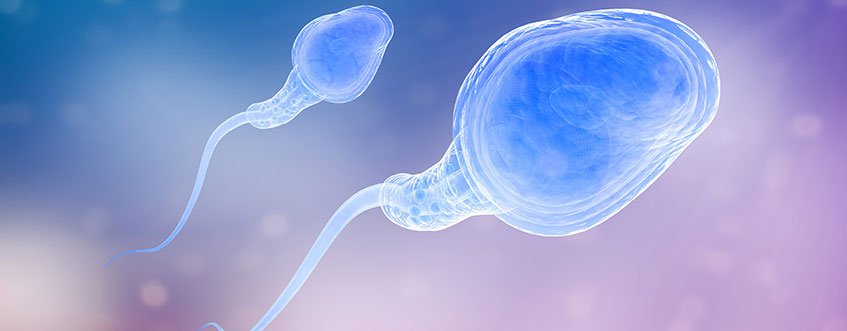INFERTILITY TREATMENTS - FEMALE

Female Infertility Doctor in Indore
Infertility in couples is common, with female infertility accounting for about 1/3 of cases. Our Female Fertility Panel includes hormone tests like Thyroid, Prolactin, Follicle Stimulating Hormone, Progesterone, Estradiol, and Luteinizing Hormone Tests. Timely screening can prevent illnesses and track health, and understanding factors leading to ineffectiveness is crucial for resolution.
Join the ILC In Vitro Fertilization Center Indore with interest and provide detailed history, including female, sexual, medical, and past treatments. Specialists evaluate patients, ask questions about medical history and lifestyle, and may use tests for infertility diagnosis.
What is an ovarian cyst test?
Ovarian reserve testing predicts fertility potential by measuring hormone levels and egg quality, while simple blood tests like AMH, E2, and FSH measure the time to determine fertility.
Follicular monitoring
What is follicle care?
Follicle analysis, also known as ovulation detection or profiling, is a medical procedure performed between days 12-16 of the menstrual cycle to track ovarian follicle development. At ILC Infertility and IVF Center Indore, Medical facilities offer follicular monitoring services for accurate and timely monitoring.
Fertility Clinics and Reproductive Centers:
Fertility clinics and reproductive centers in Indore are likely to offer follicular monitoring services.
They can guide you through the process, interpret the results, and recommend appropriate treatments if needed.
Process: Follicular monitoring involves regular ultrasounds at specific intervals during the menstrual cycle, with the timing and frequency varying based on the individual’s situation.
Cost: The cost of follicular monitoring in Indore can vary depending on the clinic or healthcare provider you choose.
Fertility Treatment:
Follicular monitoring is a crucial aspect of fertility treatments like IUI or IVF, which is coordinated by a fertility specialist.
Preparing for the Procedure:
Your healthcare provider will provide you with instructions on how to prepare for follicular monitoring.
When is follicle analysis recommended?
Observed ovulation:- Ultrasound monitors follicle growth, 12-16 days of normal ovulation, and roots may appear unattractive, confirming ovulation during sexual intercourse and monitoring ovarian reserve during IUI, IVF/ICSI.
How is Follicular Monitoring done?
Transvaginal ultrasound is the most accurate and convenient method for ovulation studies, as it doesn’t require a full bladder and is more accurate than abdominal ultrasound.
How often will I be called?
Transvaginal Sonography is a daily method for follicle growth, while Urinary LH Kits and blood tests like serum progesterone indicate past ovulation but may be inaccurate and costly.
What will be reported at the end of Follicular Monitoring?
The following are reported at the end of Follicular Monitoring:
- Number of growing follicles in each ovary
- Rate of growth of follicles
- Whether ovulation is taking place or not
- Endometrial Thickness during various stages of the cycle
How is follicle analysis done?
Transvaginal ultrasound is the preferred method for ovulation research due to its accuracy and lack of bladder filling, making it a more convenient and accurate method.
How many calls will I receive?
Transvaginal Sonography is a daily method for follicle growth, while Urinary LH Kits and blood tests like serum progesterone indicate past ovulation but may be inaccurate and costly.
Hormonal Test for Infertility:-
Female hormones control ovulation and egg implantation, with estradiol stimulating follicle growth, FSH and LH stimulating egg/ovum development, and progesterone stabilizing the endometrium. AMH tests measure ovaries and egg count, while androgens prevent uterine cancer.
Anti-Müllerian Hormone (AMH) test: –
Female hormones like estradiol, FSH, LH, and progesterone regulate ovulation and egg implantation. The AMH test measures ovaries and egg count, while androgens like testosterone and DHEAS prevent fertility issues. Elevated AMH levels may be linked to conditions like PCOS. Factors like age, FSH levels, and overall health also impact fertility.
Estradiol test:- Estradiol tests measure estrogen levels in the bloodstream, aiding in assessing ovarian function, pregnancy monitoring, menopause diagnosis, and hormonal imbalances. The test’s timing and reference range vary based on age, sex, and laboratory. Healthcare professionals interpret results.
Antral Follicle Count (AFC) test:- The Antral Follicle Count (AFC) is a fertility assessment tool that determines a woman’s ovarian reserve, indicating her fertility potential. It declines with age, making it useful for predicting pregnancy chances and aiding in initial evaluations of women seeking fertility treatment.
Follicle-Stimulating Hormone (FSH) test:- The Follicle-Stimulating Hormone (FSH) test is a blood test used to assess reproductive health and function in clinical settings, produced by the anterior pituitary gland.
Basal Body Temperature (BBT):- Basal Body Temperature (BBT) and hysteroscopy are medical procedures used to monitor a woman’s body temperature during her menstrual cycle, aiding in fertility awareness and predicting ovulation.
Procedure:
Preparation: Before the hysteroscopy, you may be given anesthesia, depending on the type of procedure being performed.
There are two main types of hysteroscopy: diagnostic and operative.
Hysteroscopy is an outpatient procedure that can remove polyps, and fibroids, break up adhesions, or perform endometrial ablation for heavy menstrual bleeding. It is typically performed for abnormal uterine bleeding to investigate and potentially treat the cause.
Infertility: To assess and treat uterine abnormalities that may be contributing to fertility issues.
Uterine Polyps or Fibroids: To remove or treat benign growths inside the uterus that can cause symptoms like heavy bleeding or fertility problems.
Hysteroscopy is generally considered a safe and effective procedure, and it can have a significant impact on diagnosing and treating various uterine and reproductive health issues.
The specific details of the procedure may vary depending on the individual case and the purpose of the hysteroscopy.
Patients should discuss the procedure and its potential risks and benefits with their healthcare provider before undergoing hysteroscopy.
Hysterosalpingogram (HSG):-
A hysterosalpingogram (HSG) is a medical imaging procedure used to evaluate the condition of a woman’s uterus and fallopian tubes.
It is commonly used in gynecology and fertility assessments to diagnose and evaluate conditions that may affect fertility or cause reproductive health issues.
Procedure:
Preparation: Before the HSG, the patient may be given instructions on when to schedule the procedure in her menstrual cycle.
It’s often performed in the first half of the menstrual cycle, shortly after a period, but before ovulation.
Patient Positioning: The patient lies on an examination table, similar to a pelvic exam or Pap smear, in a gynecological office or radiology suite.
Contrast Injection: A radiopaque contrast dye is injected through the catheter into the uterus.
This dye allows the radiologist to visualize the uterine cavity and the fallopian tubes using X-ray imaging.
X-ray Imaging: X-ray images of the uterus and fallopian tubes are taken using contrast dye to assess uterine structure and detect open or blocked fallopian tubes, often used to evaluate fertility.
Assess Uterine Abnormalities: HSG can help identify uterine abnormalities such as fibroids, polyps, or congenital anomalies that might affect fertility or cause recurrent miscarriages.
Post-Surgical Evaluation: HSG is utilized post-uterine or tubal surgeries to evaluate the outcome and ensure proper functioning, although mild cramping or discomfort may occur, usually subsiding within hours.
Hysterosalpingography (HSG) is a diagnostic procedure used after uterine or tubal surgeries to evaluate the structure’s function and outcome. It can cause mild discomfort but usually subsides within hours. It’s advisable to have someone accompany you, as you may not be able to drive immediately. The radiologist interprets X-ray images and provides a report to the healthcare provider, guiding further evaluation or treatment, especially for fertility issues.
Consult your healthcare provider about the procedure and follow their recommendations to ensure it’s safe and valuable.
Post-coital test (PCT):- The Post-coital test (PCT) is a diagnostic test used to evaluate sperm-cervical mucus interaction in female reproductive tracts, often used in infertility or pregnancy difficulties.
Procedure:
Timing: The test is usually scheduled around the time of ovulation, which is when a mature egg is released from the ovary. This is typically in the middle of the menstrual cycle.
Instructions: Prior to the test, couples are instructed to have intercourse without using any form of contraception within a specific timeframe, usually within 12-24 hours before the scheduled test.
Evaluation: Healthcare providers evaluate cervical mucus quality, quantity, and sperm presence by assessing consistency and texture to facilitate effective sperm migration.
Sperm Motility: The healthcare provider checks if there are live, motile (moving) sperm within the cervical mucus.
Sperm Count: The number of sperm in the cervical mucus is also evaluated.
A higher sperm count is generally considered more favorable for fertility.
Purpose: The post-coital test is performed to assess several aspects of the reproductive process: Sperm-Cervical Mucus Interaction: It evaluates whether sperm are capable of surviving and swimming effectively in the cervical mucus.
Timing of Intercourse: The test confirms ovulation timing in couples, as sperm must be present in the female reproductive tract for egg fertilization.
A fertility specialist assesses male infertility, creates a personalized treatment plan, discusses results, and considers lifestyle changes, medications, surgical procedures, or assisted reproductive techniques like IUI or IVF.
Consult a qualified specialist for a comprehensive evaluation and guidance. Contact ILC Infertility and IVF in Indore for this specific service of Male Infertility Assessment and Evaluation for better future long-life treatment. For more info Book an appointment Now!

